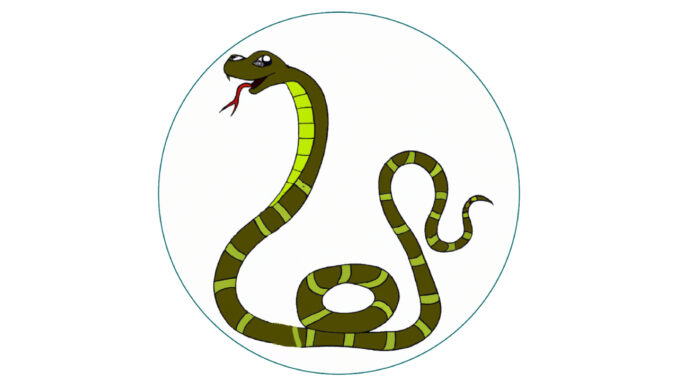
The Chinese proverb “Once bitten by a snake, one is afraid of a rope for ten years,” is a metaphorical expression of the deep impact that past experiences can have on our lives. This age-old saying offers valuable insights into human psychology and the way we react to past traumas.
The imagery of being bitten by a snake is vivid and relatable. A snakebite is not just a physical injury; it leaves a lasting emotional scar as well. The pain and fear associated with such an event can haunt a person for a long time. But why mention a rope? This is because the shape of a rope resembles that of a snake, so when they see a rope, it triggers memories of their snakebite experience.
In this context, the term “snake”, with its stealthy movements and venomous bite, is a broad metaphor for painful experiences or malicious individuals. When a person is bitten by a snake, the physical pain and psychological trauma leave an indelible mark.
The “rope” symbolizes something unrelated or even innocuous that becomes a trigger for the haunting memories of the traumatic snakebite. It serves as a metaphor for how our minds can irrationally link past fears to seemingly unrelated present situations. The rope itself is harmless, but in the mind of someone scarred by a snakebite, its appearance can evoke vivid recollections of that terrifying experience.
The mention of ten years is not a literal timeframe; it’s a symbolic gesture emphasizing the long-lasting effects of traumatic experiences. Just as the fear of a snakebite might linger for a decade, irrational fears and anxieties can persist far beyond the initial incident. These lingering fears can cast a shadow over various aspects of life, from relationships to decision-making.
This idiom compels us to confront and untangle the metaphorical snakes and ropes in our own lives. It encourages us to recognize how past traumas can shape our perception of the present and the future. By acknowledging these associations and actively working to dismantle them, we can liberate ourselves from the metaphorical chains that hinder our personal growth and well-being.